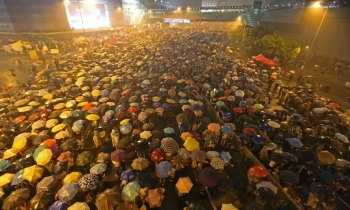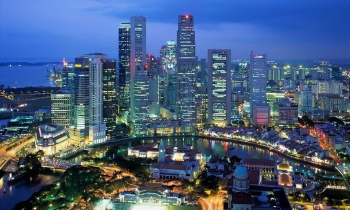Beijing - Police on Thursday detained a German journalist who was attempting to investigate controversial plans to dam the Nujiang river in south-western China's Yunnan province.
Georg Blume, a correspondent for Die Zeit newspaper, said he was taken away by police for 'illegal reporting' on Thursday afternoon while he was speaking to villagers about plans to resettle them to make way for one proposed dam.
Blume was held for about five hours at a police station in Liuku town in Yunnan's Lushui county, close to China's border with Myanmar (Burma), he told Deutsche Presse-Agentur dpa by telephone.
Police and local officials demanded that Blume destroy the notes and film of his interviews in Lushui's Shaba village, but he said they 'made a compromise' after a 'long-winded process.'
Blume said he handed over some of his material but kept anything that could allow the police to press charges against people he had interviewed.
The central government of China's ruling Communist Party has still not formally decided if it will dam the Nujiang, but local officials have already ordered some people to move from possible dam sites, Blume said.
He signed a statement agreeing not to conduct any more interviews and was allowed to remain in the area overnight as a 'tourist.'
He did not suffer any harassment or ill treatment, he said.
Foreign journalists are frequently detained in China, which requires all reporters to seek advance permission from local authorities before investigating any story.
If permission is granted, officials normally try to control the entire process of reporting and often stage-manage visits and interviews.
Any form of non-sanctioned interview or photography can be deemed 'illegal reporting' under Chinese law, even in Beijing where most foreign journalists are based.
Blume was also detained last December when he tried to report on pollution-linked 'cancer villages' in central China.
Chinese journalists face stricter rules and censorship of their reports by state media.
The New York-based Committee to Protect Journalists said it recorded 32 journalists in Chinese prisons at the end of last year, the highest total in the world.
The Nujiang flows into the Salween river, which flows through Myanmar and forms part of the country's border with Thailand.
It runs parallel to the Lancang, which flows into the Mekong.
Earlier this year, Chinese officials promised to hold 'friendly consultations' with downstream nations on plans to build a string of dams for hydroelectric power plants along the Nujiang.
The issue of the development of the Nujiang, which flows through a poor, mountainous area, has prompted strong debate in China in the past two years.
Opponents say the dams will irreversibly change the pristine environment in the deep valley.
The Nujiang prefectural government is promoting a plan to build up to 13 dams along the river as a pillar of its economic development.
The central government appears likely to approve the plan in some form, but it suspended the project in late 2004 for a further environmental-impact assessment.









